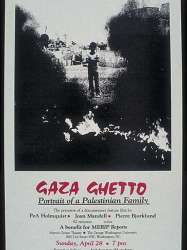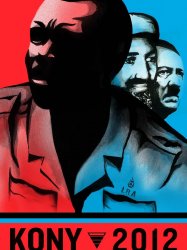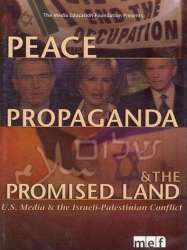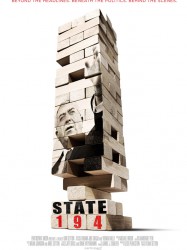Our Forbidden Places is a french film of genre Documentary directed by Leïla Kilani released in USA on 1 january 2008
Our Forbidden Places (2009)
Nos lieux interdits

If you like this film, let us know!
Released in USA 1 january 2008
Length 1h45
Directed by Leïla Kilani
OriginFrance
Genres Documentary
Themes Films set in Africa, Films about families, Documentary films about law, Documentary films about war, Documentary films about historical events, Documentaire sur une personnalité, Documentary films about politics, Political films
Rating64%










Our Forbidden Places (original French title:Nos lieux interdits) is a 2008 documentary film.
Synopsis
In 2004, the King of Morocco launched an Equity and Reconciliation Commission to investigate state violence during the Years of Lead. For three years, the film follows four families in their search for the truth: Activist, young rebel soldier or simple citizen, either they or their relations were imprisoned in different parts of Morocco. Each person tries to "find out", discover a "reason", to be able to mourn. But forty years later, the state secret finally unveils the existence of another, more intimate secret, the family secret. They all feel the need to reconstruct history and recover their parents, taken from them twice over, once by their disappearance and another by the secret. Choosing between deeply set silences, lies and taboos within and outside the families, over forty years.Comments
Leave comment :
Suggestions of similar film to Our Forbidden Places
There are 2 films with the same director, 8962 with the same cinematographic genres, 12398 films with the same themes (including 2 films with the same 8 themes than Our Forbidden Places), to have finally 70 suggestions of similar films.If you liked Our Forbidden Places, you will probably like those similar films :

The Colour of Olives (2006)
, 1h37Directed by Carolina Rivas
Origin Israel
Genres Documentary
Themes Films set in Africa, Films about families, Films about religion, Documentary films about law, Documentary films about war, Documentary films about historical events, Documentaire sur une personnalité, Documentary films about politics, Documentary films about religion, Political films, Films about Jews and Judaism
Rating70%






Gaza Ghetto (1984)
Genres Documentary
Themes Films set in Africa, Films about families, Films about immigration, Films about religion, Documentary films about law, Documentary films about war, Documentary films about historical events, Documentaire sur une personnalité, Documentary films about politics, Documentary films about religion, Political films, Films about Jews and Judaism
Rating56%






Origin Israel
Genres Documentary, Historical
Themes Films set in Africa, Films about religion, Documentary films about law, Documentary films about war, Documentary films about historical events, Documentaire sur une personnalité, Documentary films about politics, Documentary films about religion, Political films, Films about Jews and Judaism
Rating59%






Screamers (2006)
, 1h29Origin USA
Genres Documentary
Themes Films set in Africa, Films about racism, Documentary films about racism, Documentary films about law, Documentary films about war, Documentary films about historical events, Documentaire sur une personnalité, Documentary films about politics, Political films
Actors Shavo Odadjian
Rating58%






Kony 2012 (2012)
, 30minutesDirected by Jason Russell
Origin USA
Genres Documentary
Themes Films set in Africa, Films about children, Films about terrorism, Documentary films about law, Documentary films about war, Documentary films about historical events, Documentaire sur une personnalité, Documentary films about politics, Documentary films about terrorism, Documentary films about child abuse, Political films, Films about child abuse
Rating44%





Kony 2012 est un événement international organisé par le groupe Invisible Children. Le but recherché est de faire connaître mondialement Joseph Kony pour mieux faciliter son arrestation. Joseph Kony est responsable de crimes d'enlèvements d'enfants pour en faire des soldats, de réduction d'enfants à l'esclavage ainsi que l'esclavage sexuel pour les jeunes filles, de nombreux massacres civils, d'exactions et de nombreuses destructions et pillages réalisés par les troupes de chocs. Ce criminel est resté dans le silence pendant une vingtaine d'années à commettre ses crimes sans en payer les conséquences.

As We Forgive (2008)
Genres Documentary
Themes Films set in Africa, Films about racism, Documentary films about racism, Documentary films about law, Documentary films about war, Documentary films about historical events, Documentaire sur une personnalité, Documentary films about politics, Political films
The film tells the story of two Rwandan women who come face-to-face with the neighbors who slaughtered their families during the 1994 genocide, and their personal journeys toward forgiveness. Featuring in-depth interviews with both survivors and murderers, As We Forgive provides an intimate, first-hand view of the encounters between genocide perpetrators and their victims’ families.
 , 1h20
, 1h20Origin USA
Genres Documentary
Themes Films set in Africa, Films about religion, Documentary films about law, Documentary films about war, Documentary films about historical events, Documentaire sur une personnalité, Documentary films about politics, Documentary films about religion, Political films, Films about Jews and Judaism
Rating81%





 , 1h10
, 1h10Origin Canada
Genres Documentary
Themes Films set in Africa, Documentary films about law, Documentary films about war, Documentary films about historical events, Documentaire sur une personnalité, Documentary films about politics, Political films
Nadine Bari takes us down a road in Guinea as she searches for her husband. As she does, she tells us of the long battle she faced to get the Guinean authorities to tell her what had happened to her husband after he disappeared. Hopeful and desperate, her story is similar to that of thousands of women who are still trying to discover what became of their husbands, fathers, brothers or sons during Sékou Touré's dictatorship.

State 194 (2012)
, 1h38Origin Israel
Genres Documentary
Themes Films set in Africa, Films about religion, Documentary films about law, Documentary films about war, Documentary films about historical events, Documentaire sur une personnalité, Documentary films about politics, Documentary films about religion, Political films, Films about Jews and Judaism
Rating57%





The documentary follows the plan that Palestinian Prime Minister Salam Fayyad puts forth in 2009 for the Palestinians to achieve statehood. It follows the progress made by the Palestinians but also "the political quagmire" that threatens the progress. The documentary shows the following people:
 Connection
Connection